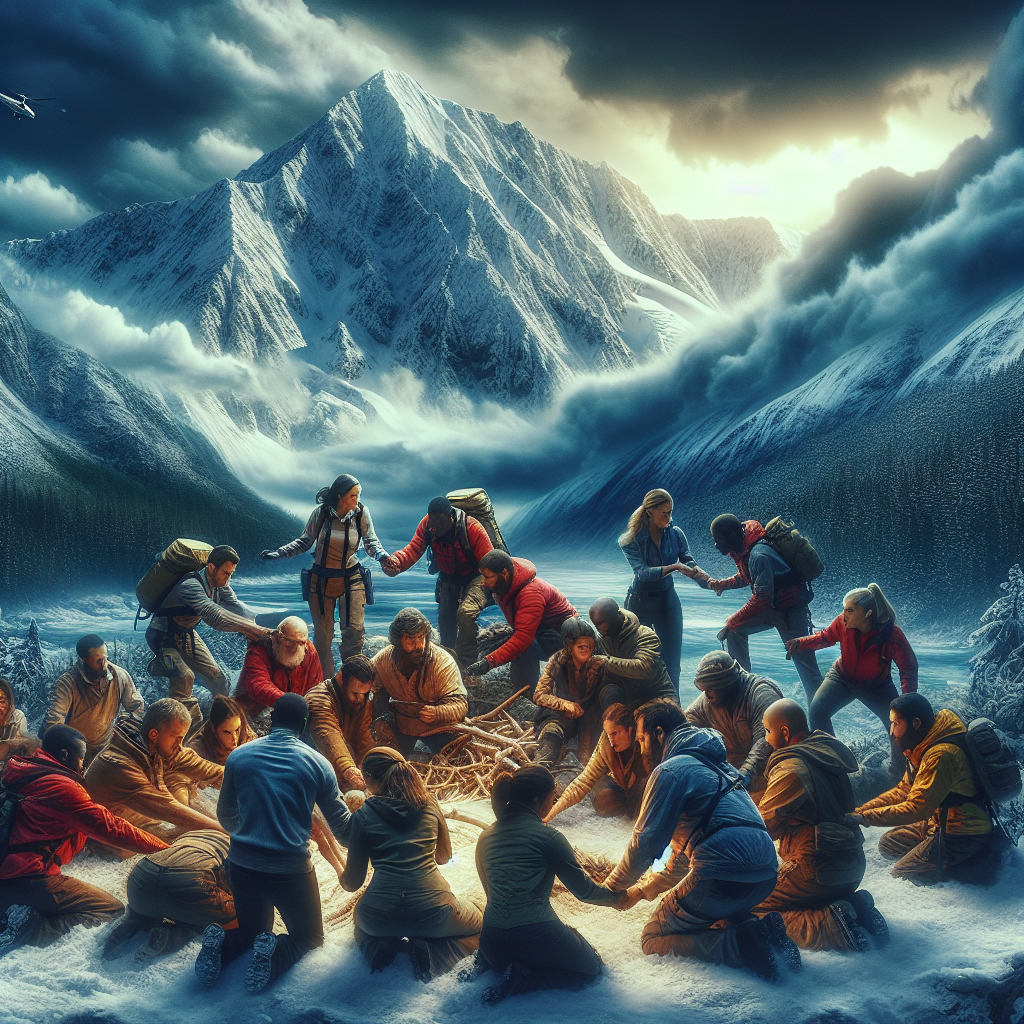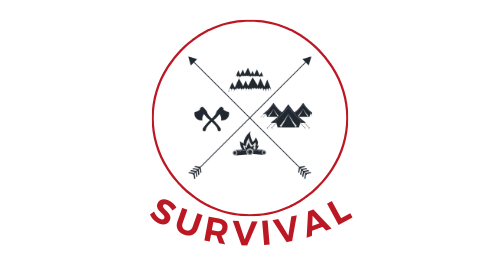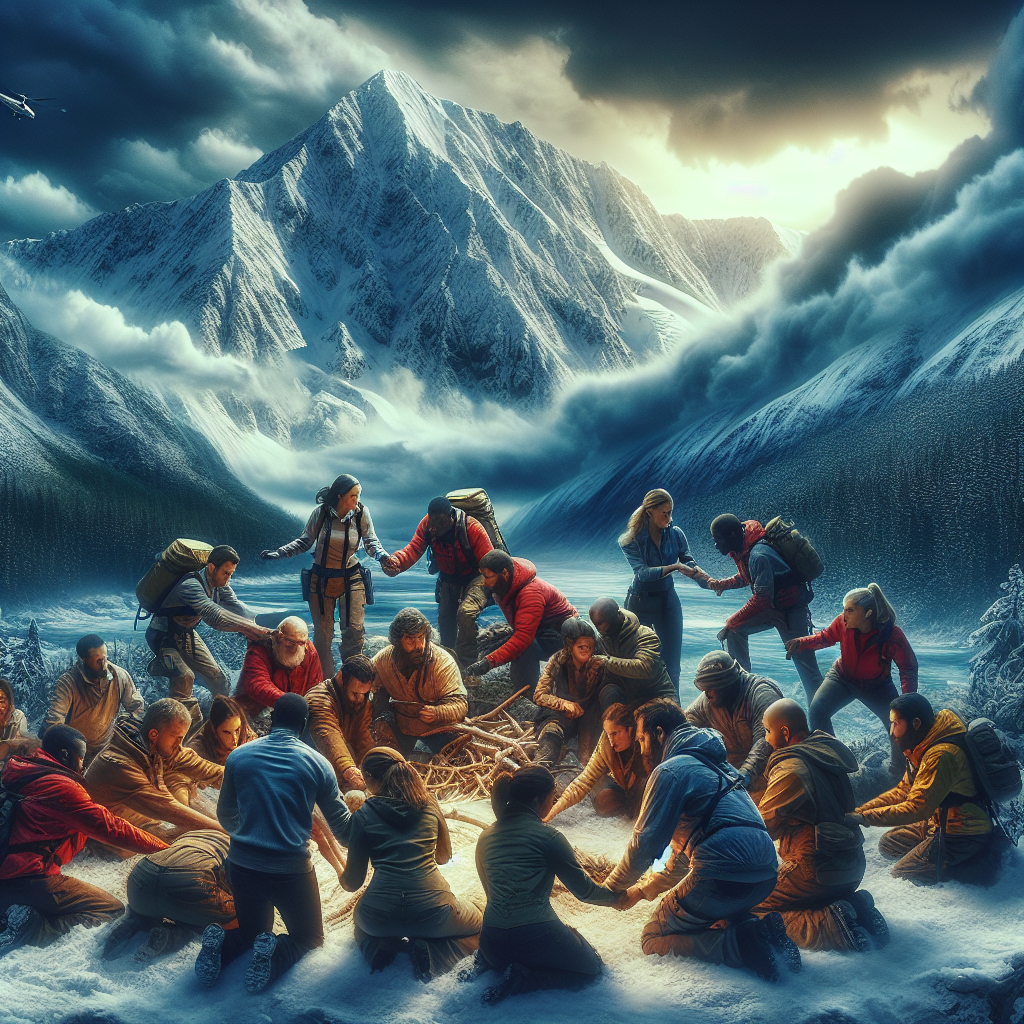In challenging situations where the odds seem stacked against you and the fear of survival looms over, the value of teamwork becomes paramount. Whether it’s navigating through treacherous terrain, battling the elements, or facing unforeseen dangers, teamwork proves to be the key to overcoming these obstacles. When individuals come together, pooling their skills, resources, and support, they create a formidable force that increases the chances of not only survival but also thriving in the face of adversity. In this article, we will explore the vital role that teamwork plays in survival scenarios and how it can make all the difference between life and death.
The Importance of Teamwork in Survival Scenarios
Survival scenarios can be daunting and challenging, but working together as a team can greatly increase your chances of success. Whether you find yourself in a wilderness survival situation, a natural disaster, or any other emergency, the value of teamwork cannot be overstated. In this article, we will explore the various benefits of teamwork in survival scenarios and why it is crucial to come together as a collective.
Enhanced Decision-Making
When faced with critical decisions that could potentially impact your survival, having a team can greatly enhance your decision-making abilities. Collective decision-making allows for a broader perspective, as multiple minds contribute their thoughts and ideas. Each team member brings unique skills, knowledge, and experiences to the table, which can result in a more well-rounded and informed decision. By considering diverse perspectives and actively listening to one another, your team can identify potential blind spots and reduce cognitive bias.
Sharing of Skills and Resources
In survival scenarios, every individual within a team possesses specific skills and resources that can be shared for the greater good. By utilizing each team member’s abilities, you enhance the overall capabilities of the group. Some may excel at navigating through rugged terrains, while others may possess medical knowledge or be skilled in constructing shelters. Pooling your knowledge and experiences allows you to optimize resource allocation, ensuring that everyone’s skills are utilized to their fullest potential. This not only increases your chances of survival but also builds a sense of collective ownership.

Increased Resilience
Survival scenarios can be physically and emotionally draining, which is why mutual support and care are crucial. When faced with adversity, a strong team provides the necessary support system to weather the storm. By sharing the responsibility of survival, you can motivate and encourage one another, boosting morale and mental well-being. Knowing that you are not alone in your struggles can provide a sense of comfort and help you persevere in the face of adversity. The bond forged through mutual support and care increases resilience, making the team stronger and more capable of overcoming challenges.
Division of Labor
Efficient task allocation is key to the success of any team in a survival scenario. Dividing the workload ensures that each individual can focus on their strengths, leading to increased productivity and time management. By implementing specialization and expertise, the team can maximize its efficiency. Instead of struggling to complete every task individually, the division of labor allows for a more streamlined approach, improving overall productivity. With a clear understanding of each team member’s responsibilities, you can work together seamlessly, tackling various tasks simultaneously.

Improved Communication
Clear and timely communication is vital in any team setting, especially in survival scenarios where quick decision-making and information exchange can be a matter of life and death. Effective communication allows team members to share vital information, coordinate actions, and adapt to changing circumstances. Active listening ensures that everyone’s thoughts and ideas are heard, fostering a collaborative atmosphere that values and respects each individual’s input. Additionally, effective feedback mechanisms help the team learn and grow, enhancing communication skills and avoiding potential misunderstandings.
Effective Problem Solving
Survival scenarios often require creative problem-solving approaches, and having a team can greatly facilitate this process. Collaborative idea generation encourages the exploration of various solutions, increasing the likelihood of finding the most effective one. By drawing upon diverse problem-solving approaches, your team can approach challenges from multiple angles, ensuring a comprehensive assessment. Collaborative decision-making allows for thorough evaluation of each solution, resulting in a well-informed choice. Together, you will be better equipped to confront and overcome the problems you may encounter.
Boosted Morale and Mental Well-being
In survival scenarios, emotional support and camaraderie play a crucial role in maintaining a positive mindset. Being part of a team provides emotional support during challenging times, allowing you to lean on one another for encouragement and reassurance. The bonds formed within a team can help boost confidence and reduce stress levels, creating a more favorable mental state. With increased morale and mental well-being, you can face the difficulties ahead with a greater sense of determination and resilience.
Enhanced Adaptability
Survival scenarios often present unpredictable and rapidly changing circumstances. The ability to adapt quickly is essential for survival, and a cohesive team lends itself to enhanced adaptability. By fostering flexibility within the group, you can navigate through changing scenarios more effectively. Team members can quickly adjust to unexpected situations, identifying alternative strategies and implementing them promptly. By collectively responding to challenges, the team can stay agile in the face of adversity, increasing the chances of survival.
Improved Safety
When it comes to survival, safety is of utmost importance, and teamwork significantly enhances your safety measures. Having more eyes and ears to monitor your surroundings increases situational awareness, allowing for early detection of potential threats or dangers. Additionally, a team can come together to develop and execute safety plans and protocols, ensuring that everyone understands and follows the necessary precautions. By working together, you can identify and rectify potential hazards, significantly reducing the risk to each team member.
Fostering of Relationships
Survival scenarios not only test your physical capabilities but also build strong bonds and relationships within the team. The shared experiences, challenges, and triumphs create a sense of trust and cohesion among team members. In the face of adversity, relying on one another fosters a deep level of camaraderie that extends beyond the survival scenario. These relationships go beyond the immediate situation and become a valuable support system in other aspects of life. The connections forged through teamwork can last a lifetime, serving as a reminder of the importance of working together towards a common goal.
In conclusion, the value of teamwork in survival scenarios cannot be underestimated. From enhanced decision-making and improved communication to increased resilience and boosted morale, teamwork provides a multitude of benefits that greatly increase your chances of survival. By working together, sharing skills and resources, and fostering strong relationships, you create a cohesive unit capable of overcoming even the most challenging circumstances. Remember, when faced with a survival scenario, your most valuable asset is not just your individual skills, but the team beside you.

